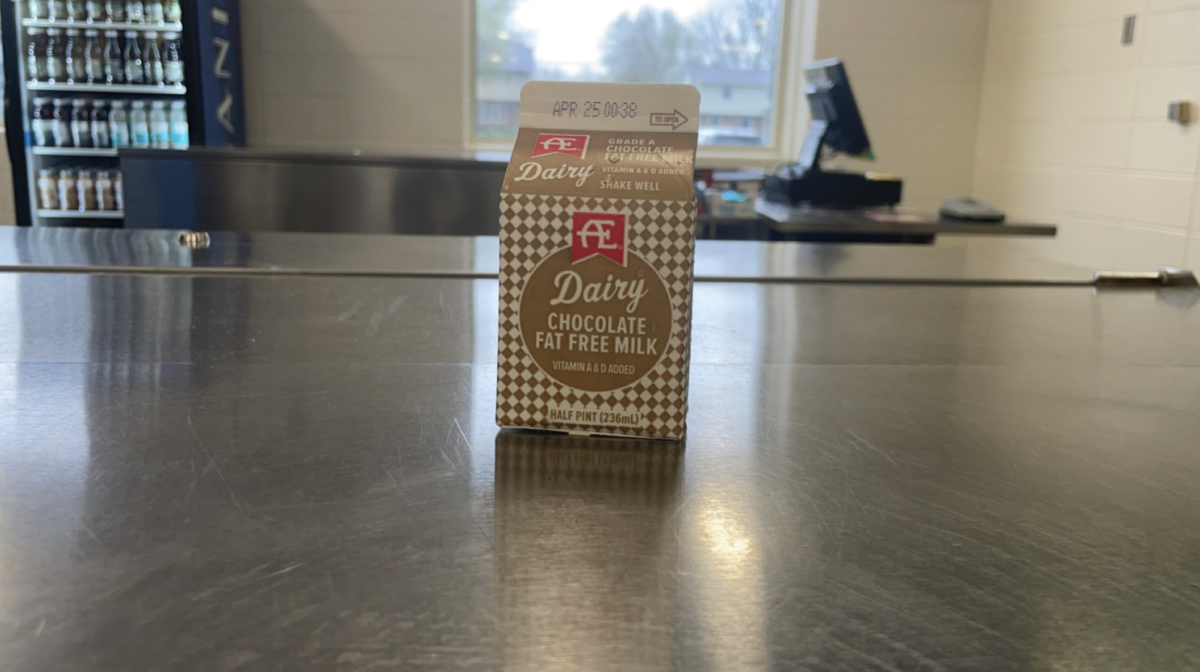While chocolate milk was a staple of many childhoods, today’s youth might not have the opportunity to choose flavored milk as a part of their school lunches.
Beginning in 2023, the U.S. Department of Agriculture has been deliberating taking flavored milk off of the lunch menu.
The purpose of offering chocolate milk has remained the same: convince kids to drink more milk. Milk is considered extremely beneficial, especially for growing children, and its contents of calcium, protein and vitamin A improve the health of children at a low cost.
However, the added sugars that flavored milk servings contain pile up as kids drink milk on a daily basis and can lead to unnecessary health risks like diabetes and obesity. This aspect leads many experts to wonder whether the potential risks of drinking chocolate milk are worth getting children to consume more milk and whether banning the drink will steer kids away from unflavored milk altogether.
In an attempt to please as many as possible, the USDA proposed banning chocolate milk in elementary schools while continuing to allow serving it for older students.
While some agreed with this decision, many parents and members of the community opposed the USDA’s solution. Bringing up the substantial benefits of milk on younger children and the ability of choice, parents became frustrated with the potential policy.
As the idea of chocolate milk being banned circulates, it sheds light onto a much broader issue. Schools take on the role of parents for almost 35 hours a week, and although they have the ability to create their own rules and regulations, the line determining the significance of parental opinion remains fuzzy.
Junior Swetha Narmeta believes that the value of parental input should have boundaries. “Parents should have the ability to make decisions for their own child on an individual level, but not for the whole entire school,” Narmeta states. “It’s important for parents to be able to have a say in what their own children do but not necessarily school policy, which affects all different students from different families.”
While parents should have a reasonable authority when it comes to their child’s school, it does not necessarily give parents the right to have a say in all school decisions. Many of the decisions schools make revolving school policies are made by experts in the field, focusing on the combined well-being of children, teachers, and administration staff.
Junior Grace Schmidt believes that students should have self autonomy while in school. “I understand that parents want to protect their kids and that they know their kids personally in a way the school doesn’t. However, while students are in school it is the role of the school to protect students and supply healthy choices for students,” Schmidt claims.
This applies to the chocolate milk case as well.
While parents are quick to object to the idea of removing a lunch option that kids truly enjoy, administrators and other officials must regard the health of the children as the utmost priority. For lower income schools in particular, children on free or reduced lunches who might not be receiving nutritious food at home are more severely affected by the compounding of added sugars in school lunches.
The different needs of children must be closely analyzed by professionals in order to ensure that the choices the school makes will provide the most beneficial outcome. Although most parents know what is best for their child, it is highly unlikely that they know what is best for everyone else.









